A writer from Cairo imagines a chance encounter between two writers in Prague enamored of Kafka.
Imagine with me a wooden seat in the front courtyard of a house on the banks of the Vltava, close to Charles Bridge. Upon this seat a plump woman sat, her hair dancing in the cold spring breeze, her attire black and simple. The woman was deeply pondering a tiny space of ground between her slightly spread feet, her mind blank, her heart beating fast.
Near her was a man of similar age, with dark hair, sharp features, and sullen eyes. He did not look in her direction; instead, his gaze, like hers, was fixed on the ground. Yet he sensed that she lingered within his field of vision.
Alone together in the early morning sunlight—the woman had arrived from Cairo on a visit to one of the cities of her dreams; the man had flown in from Seattle two days earlier to take part in a literary festival in a city he never grew tired of roaming.
Both were writers, so it was hardly surprising that they met while each was independently visiting Kafka’s house—or to be precise, his museum. Until then neither of them knew of the other, nor the similarities between them; each was but a ghost who could only guess that their companion existed, without their paths having crossed or them being introduced.
“Lovely day, isn’t it?”
A well-worn phrase that the man from Seattle used in an attempt to start a conversation with the woman next to him—a woman lost in nothingness.
She nodded but did not lift her eyes from the space between her feet. The man nearly abandoned his attempt at small talk with a woman whose features did not give away her ethnicity or nationality.
She straightened up and came back at him with perfect English:
“I’ll write about this moment one day. There are moments when time thickens until I can almost feel its weight and texture. I stare at it and find that it’s staring back. Such moments have inhabited me for a long time. I can only get rid of them by emptying them out on paper. Here and now, I see time as I’ve never seen it before. I see it embodied in the space between my feet.”
“You’re a writer like me? I visit Prague regularly, and every time, my feet instinctively bring me to this spot as soon as I place my bags in the hotel room.”
“This is my first visit. But would you believe me if I told you that I see Prague in a recurring dream, and that right now, it’s exactly as I dreamed of it before?”
He offered no reply, but the spark of curiosity in his eyes compelled her to continue.
“In my dream I’m writing a story—watching it unfold and taking part in its events at the same time. It ‘s about a Russian woman who’s a writer. She’s living in Prague and is writing about a little girl who has survived a massacre. There’s a pianist living with this Russian writer, and in the dream I want to assign him a nationality but decide to leave it for later! There’s also an old man, walking back and forth incessantly across Charles Bridge. I follow his movements from the balcony of the Russian writer in a building overlooking the Vltava. In his endless steps, the old man stares intently at his footprints, as if that will help him keep his balance. Then he stares at the stretch of river on either side of the bridge.”
“Sounds more like a movie than a dream!”
“Perhaps, but the geography of the city is very clear in my mind, and it’s a carbon copy of what I see on this visit.”
Since her arrival, she’d been walking for hours, back and forth, on Charles Bridge, lingering for a long time parallel to Vltava, in search of an old building that held the apartment of the Russian writer she saw in her dream. She was certain that it existed, waiting for her, with all its details.
She walked tirelessly, her mind occupied with the thought of an old man watching her from the balcony of a timeworn building. The old man had turned his back to a 60‑year‑old writer inside, who was absorbed in a marathon of words and thoughts, and to a pianist of no specific nationality seated at a nearby piano, intently studying his fingers extended on the keys, as if striving to overcome the fear that he had irrevocably lost his ability to play.
The old man was oblivious to what was happening behind him and unconcerned with the predicament of his companions. He only watched the woman who spanned the bridge persistently, certain that he had been her in a previous life, and that, if not for his illness, he would have chosen no better way to kill time than this ritualistic walk from one bank of Vltava to the other.
What if we chose the name Camelia for the Cairene woman sitting in the front courtyard of Kafka’s Museum? And Adam for the man from Seattle, seated beside her, listening to her words in silence?
Did I take too long to decide? I know. But such things are forgivable in games of the imagination. Camelia confided in Adam things she had never shared with even those closest to her. Yet she kept one secret to herself—a secret that felt at once like a gentle pat of sympathy and a stinging slap. Both the pat and the slap revolved around the seed of a child that had grown inside her for six weeks before she made the hardest decision of all: to let it go. She spent only a few hours in the hospital, leaving without any visible change, but certain that she would never be the person she once was. In that moment, she felt that a hole—literal, not metaphorical—had been carved inside her. In the following nights, she was besieged by nightmares and overtaken by a weakness for which the doctor could find no physiological cause. She abandoned writing and wandered the streets of Cairo for days, until exhaustion crushed her, forcing her to sit down at a bus station or on a bench in a public park, staring at a spot between her feet, or contemplating a crow perched in a nearby tree.
In a park called Horeyya, just across from the Opera House, Camelia sat, lost in thought, just weeks before her trip to Prague. She pulled out her phone and took a picture of herself—only to find a stranger staring back at her from the screen. A wave of fear gripped her—the sorrow that had settled over her gaze, the droop of her eyelids, the premature wrinkles etched into her exhausted face. At thirty-nine, Camelia seemed utterly alone, drained, and a decade older than her years. This was no mere image—it was a sharp, unrelenting kick that shattered what little reason and composure she had left.
Picture this: a violent kick sends a five-year-old girl hurtling through the air, her head slamming against the opposite wall—without her ever understanding what crime she had committed. Let’s remember this kick, for it is important in our little game. Camelia never forgot it—ever since it sent her flying, teaching her that the most devastating blows come when we least expect them. She believed she wrote for one reason alone—to make sense of this seemingly small event from her early childhood:
“Perhaps I write to find meaning in life’s unexpected collisions—in the kicks dealt to me by those I had never harmed and never imagined my mere existence could trouble,” she told Adam, shrugging her shoulders as if she didn’t care.
He listened, then told her that, as a boy, he had dreamed of becoming a writer ever since he had read a story by H.P. Lovecraft—or rather, ever since he had seen Lovecraft’s name on the cover of a book.
What an extraordinary name! Even now, he shivered at the memory of that distant moment.
“Lovecraft: the craft of love.”
It had struck him then that writing was, in fact, the very craft of love the name implied, calling out to him like a siren perched upon a rock, luring him toward an Ithaca that did not exist.
He spent the nights that followed in a state of exquisite trembling, devouring Lovecraft’s stories while dreaming of surpassing their creativity.
None of this would seem strange if we imagined that this particular Adam was the grandson of a Middle Eastern refugee, who had married a Greek sailor and traveled with him from port to port until they finally settled in Seattle. As you know, all things are permissible in a game of suppositions—and right now, we are merely playing.
What business do we have with storytelling, anyway? Let’s leave that to certain writers, busy weaving their meaningful tales, and instead lose ourselves in whatever might help us kill time or ignore its iron grip on our throats.
No one will understand this except a woman haunted by the memory of an old kick—a memory that summons a ravenous specter, feasting on her nerves and growing steadily within her depths; and a man, descended from a massacre survivor and a seaman tired of endless voyages, who chose to settle in a cold city, surrendering himself to a life that promises little.

“The dream and the nightmare are spun from the same thread; my dreams and nightmares are woven from the same fabric. With my words, I have laid traps for myself. I was both the hunter and the prey—Lovecraft was nothing more than an excuse to embrace fear. In my dreams, a little girl with my grandmother’s eyes chases me—a small, exhausted child on the march toward death. She does not cry. She does not scream. She only looks at me with eyes that hold the terror of the world, fear as ancient and primal as time itself. My grandmother was not the daughter of the massacre; she was its orphan.”
Adam said these words to Camelia, as if speaking to himself. When no reply came, he fell silent, his gaze fixed on a portrait of Kafka hanging in the museum’s entrance.
As a child, he would often open the atlas, staring at the world map, searching for his grandmother’s birthplace. He would trace an imagined route of her journey, envisioning how she left that place for Beirut, where she met and married his grandfather. He would also shade in the city of Thessaloniki, where his grandfather was born, using a red pen—the same pen he used to marked every port his eyes fell upon. He liked to imagine that his grandfather had passed through them all.
For Adam, picturing it was never difficult—his grandfather had always enjoyed speaking about his past, the places he had visited, and where he had lived. But when it came to his grandmother, everything remained a matter of imagination, leaving the grandson like someone lost in a dark forest.
It occurred to Adam that his next story could be about a “survivor” of a disaster—someone who awakens to find himself amid ruins, then isolated in a forest of oaks, unable to grasp what had happened to him or how he had been drawn into its damp, consuming darkness. In this forest, where shadows swallowed the light, he would sense a spectral presence—a dark ghost that bore his likeness, pacing the narrow paths between the trees, tireless and unrelenting. From a distance, the whistle of the wind reached him, and a foreboding rumble followed, as if the whole universe had become a terrifying storm of sound.
As Adam thought further about the protagonist of his unwritten story, an image took shape before him—his grandmother in old age, softly humming songs in a language unknown to him. Songs more like funeral hymns, drawing her, each time, into a shell that cut her off from everyone.
She never uttered a word about what she had endured. The life she claimed as her own began the moment she met the Greek sailor, who was madly in love with her. She left with him, and they remained inseparable until his death. Everything before that life was left to speculation—speculation that consumed the child Adam once was, during his long hours in the basement of the family home.
In that basement, Adam learned everything there was to know about life.
He realized, for instance, that the surest way to conquer fear was to surrender to it completely—to merge with it, so that it became him, and he became it. They would fuse into a single being, and only then, when it had seeped through him, would it lose its hold over him, shrinking into a ridiculous monster, stripped of majesty, of any real power to terrify.
In that pitch-black basement, he stared his fears in the face, and his very pores absorbed them. He lay on his back, waiting for the ghosts of his imagination to take form before him, to lead him to everything that had ever frightened him. But all he heard were the muffled sounds of rats, sheltering in the dark, as he listened to his own thoughts and silence.
He dived into the worlds of Lovecraft, which, over time, felt increasingly distant from his reality—yet he chose to live in them, to believe in them. Like Alice tumbling down the rabbit hole into Wonderland, he spent his days in the darkness of the cramped, dust-covered basement, cluttered with forgotten things, until he mastered the art of delving into the hidden caverns of his own self.
He once read about a primitive tribe that locked its children inside tombs for hours, submerging them in fear until they overcame it. The article never revealed what became of those who underwent the ritual, nor how they lived their lives after their temporary ‘death.’ He only knew that the child who slept in a dark basement for the first time was never the same again—after lying side by side with his nightmares and taming them.
In the silence of the basement, a thought lit up his mind: that the worst of evils are planted within us, and that ghosts and devils are merely exaggerated specters, used to frighten us—to distract from the darkness lurking in our own hearts.
Those who poisoned his grandmother’s life and exterminated her family were not ghosts or devils—they were human. A fresh terror took hold of him: that life might one day force him to unleash his own darkness.
His grandmother never spoke of the horrors of her childhood. They became like a talisman cast into the depths of a well. She would sit him beside her and sing to him in a voice heavy with sorrow, songs he did not understand, while his mind drifted far away, imagining possible scenarios of what she concealed and refused to confess.
In his mind’s eye, he saw her—small, trembling, holding her breath inside a bedroom closet, pretending to be dead until the danger passed. He liked to imagine that she only pretended to be dead for a little while—only to spend the rest of her life pretending to be alive.
From her supposed hiding place, the wailing of her mother reached her, mingled with the screams of her sisters, the sounds of blows landing, and harsh orders for the attackers to depart. The stifling scent of smoke surrounded her. She emerged, her body shivering, her eyes unseeing—only to behold the corpses of her family: naked, drowned in their own blood. The flames devoured everything in their path. The hallway choked in thick, black smoke, the frenzied fire contending with it, in a hue the little girl would never forget. Until the end of her days, she refused to wear orange in any shade and avoided fire at all costs.
For a moment, she hesitated—torn between collapsing onto the bodies of her loved ones and burning with them or fleeing. The searing heat of the fire made the choice for her. She ran back to the bedroom, leapt through the shattered window, and kept running, unaware of distance or time, until her strength gave out and her tears streamed down. She wept for all who had ever been killed since the dawn of time.
In the basement, too, Adam experienced his first sexual encounter. The girl was a few years older than him. She guided his hands to the hidden places of her body and his own, pulling him hurriedly down the path of pleasure. She was irritable and impatient, growing frustrated when he came too soon. For a time after, he believed that impatience and anger were inherent traits in women in moments of intimacy. The girl’s coldness left him with a fear of sex that cost him years of self-doubt and anxiety—that he would never be able to satisfy a woman.
He often thought of the girl in the basement, summoning the phantom of a young woman with coppery hair, a face almost swallowed by freckles, and eyes lost between pale green and hazel. But the hair, like a cloud suspended over the sky of her taut body, is all that remained of her in his mind.
For years, he conjured her as she had left him in a silence that felt like a rebuke. She dressed quietly and walked away without once looking back at the boy who still lay there—smoking his cigarette, pretending to be engrossed in it while staring at the ceiling. The basement’s light was certainly poor, so perhaps her hair had never truly gleamed; yet in his memory, it shone—radiant, swaying behind her in time with her dancing steps. He could never recall that teenage girl except with her back turned to him, as though repelled—a perpetual, unceasing departure that defined her presence in his mind.
Not long after, she moved to another city, and he never saw her again. And yet, he kept seeing her in every woman with the same hair color, remaining sensitive to even the slightest gesture of rejection. He did not understand why he told Camelia that old story, nor why he revealed to her the secrets of his childhood and adolescence as they sat together in the front courtyard of the Kafka Museum. All he knew was that the thread of conversation wove itself between them—smooth, effortless—as if they were competing to see who could be braver in stripping their souls bare and exposing the deepest chambers of their fears.
The sun emerged from behind the clouds. The breeze stirred the palm fronds. A hoopoe pecked at the grass with the confidence of a fool. Camelia sat on a bench in Horreya Park, her eyes intoxicated, recalling a past moment in the courtyard of a house on the banks of the Vltava, and an old memory that kept renewing itself, chasing her wherever she turned. This almost-hidden park had become her refuge whenever she felt distressed and longed to drown within herself. Ever since she had sat there weeks before her trip to Prague, when she gazed with sorrow at a photo of herself on her mobile phone, she had felt a deep bond with this marble bench, securely fastened to the ground of a public park—one rarely noticed by the pedestrians walking between Qasr el Nil Bridge and Galaa Bridge, or by the rogue cars speeding past the opera house.
She closed her eyes and was confronted by a black hole expanding inside her body. It consumed first her uterus, then her ovaries, then her liver and kidneys. She opened her eyes, shivered, and stared at the receding clouds, afraid that the hole would grow and expel her heart from its hollow space. It seemed to her that the clouds were forming the image of a crawling child, so she refrained from looking upward.She noticed that the park was almost empty of strolling people. The sounds of the street outside reached her. A bird whose name she did not know chirped. She looked to her right and found the apparition of a dark-haired man with grim eyes sitting next to her.She spoke to him, hoping that her words might erase the images of the child and the black hole:
“Quite often, I feel that I am not a woman of flesh and blood, but an idea that came to a writer—an idea she kept turning over in her mind, without wanting to deepen or expand or even write. A painting that resists completion. I write in search of my own completion, yearning for this passing idea that is me to become a tangible entity with real presence.”
Then she added:
“It is not that I borrow the lives of my characters and merge them with my own reality, but rather that my life itself is borrowed, neither belonging to me nor resembling me, as if I had taken it from a hurried passerby, leaving behind the child I once was, the woman I was meant to be, in some old place, in a dark corner, gathering dust.
“During successive train journeys across various European cities, I’d be overwhelmed by the feeling that I was living another woman’s life. I’d watch the passing forests, lakes, and mountains from the train window, and this sense of a borrowed life would intensify, deepening my detachment from it. ‘I am not supposed to be here!’ I would tell myself throughout the month I spent there, only to remember that this sentence has been the implicit title of my life since its inception. I have always been possessed by the profound belief that I am always and forever in the wrong place.”
When she did not receive a response, she pondered how writing—at its essence—was like chasing a mirage, toying with it, even inventing it. It transformed a certain reality into an illusion, or led one to believe that a mirage is a tangible truth, awaiting the moment when its scattered waters might quench our thirst.
She turned to the right once more. The apparition with the dark hair and grim eyes dissipated, proving he was an illusion. She looked around her and noticed that the few remaining park-goers were watching her with astonishment, before pretending in embarrassment that they were busy with other things.
Sitting on her bench in Horreya Park, Camelia closed her eyes again and raised her head. Visions came to her—a tumultuous flood of images and scenes. She saw another sky that was more like a projection screen, displaying dancing carnivals; an orchestra playing nonstop, horses prancing to its tunes; children running happily; lit fires around which people gathered to listen to endless stories, their staring eyes reflecting the burning flames.
She immersed herself in the successive images—first seeing herself as a young woman on a dark balcony in the arms of a man twenty years her senior, and moments later, in that very balcony bathed in daylight. She sat, cradling an infant that clung to her as she watched the carnival unfold on a screen in the sky. Then the scene shifted: the festive air vanished, replaced by the sudden appearance of a carriage drawn by galloping horses that sliced through the sky, only to disappear like a burning comet as it approached Camelia. From the carriage window, a powerful hand reached out, intent on snatching her baby away. Roused from her imaginative reverie, Camelia was seized by conflicting emotions—panic at the thought of her child being torn from her arms, relief that he existed only in her mind, and sorrow at losing him before he had ever known life.
She lifted her eyes to the sky and contemplated the shifting shapes of the clouds. At first, they appeared as vague formless figures. But as her gaze sharpened, she discerned the outline of a mare and its filly, much like a mother and child strolling side by side, the way she once walked with her own mother, Dawlat, on brief errands, shopping trips, or visits to friends. Those outings overflowed with warm, endless gossip, punctuated by the ritual of sipping Turkish coffee, always culminating in Dawlat reading coffee grounds or tarot cards for her companions. In those moments, Camelia watched her mother with awe—as if she had suddenly acquired magical powers, even though her predictions were not always right. It was enough that her friends held their breath, waiting to hear what she would say, revering their friend who had learned to read horoscopes from her Nubian nanny.
On the journey home, Dawlat would sometimes share with Camelia the secret behind choosing her name, promising to teach her the art of reading coffee grounds and tarot cards when she grew older. No matter the topic of their conversation, those moments together were the warmest and most intimate. Out on the street, as they walked side by side, Dawlat exuded a tenderness so profound— as if there was something at home that chained her, creating a barrier between her and her little girl.
She named her Camelia after the beautiful forties actress. When they sat together watching the star in the movie Amar Arbatashar “Full Moon Beauty”, Little Camelia felt that the name she shared with the actress was a wicked mockery of her. The fact that the forties actress was merely a pretty face with no notable talent to speak of brought no consolation to Camelia. Nor did it diminish the inherent irony in the contrast between our unassuming heroine and her alluring namesake—that the latter’s true name is Lillian Cohen, while Dawlat and her friends have long taken to calling the little one “Melia.”
Her mother didn’t particularly care for that actress—after all, she had seen only two of her films. And yet, during her own adolescence, she spent years gathering photos and information about the actress from celebrity magazines, solely because she was captivated by the beautiful woman’s relationship with director-actor Ahmed Salem.
Let’s say that her core infatuation was fixated on Ahmed Salem himself—the man she regarded as the most sexually attractive. She always wished she could have belonged to his era and met him. Her interest in Camelia the actress was not genuine, but merely an accessory complementing her teenage crush on a man she had encountered only through old photographs and black-and-white scenes in forgotten films. She knew nothing about him except what she read—details that painted an entirely unflattering picture of him: an antihero who carried within him the seed of his own destruction, igniting with his own hand a spark that would later consume him. From her youth, she had been fascinated by this type, her favorite actors being those who excelled at portraying such roles. So what could be more astonishing than encountering this very persona embodied in a real man, far from the silver screen?
A dangerous adolescence led her to marry at twenty a man whom she saw as the closest resemblance to the gambler of her dreams.
Between a fanciful mother who seemed to live in another era and an irritable father who regarded his daughter’s constant absent-mindedness and slow movements as unmistakable signs of mental delay, Camelia lived in anxious anticipation of the next kick from a father whose bouts of wild, manic anger transformed him into a terrifying creature—one that bore no resemblance to what she believed a father should be.
The fact that the kick—which sent her soaring into the air when she was just five—was never repeated did nothing to calm her fears, nor did it ever persuade her to relinquish the panic that seized her every time someone suddenly raised an arm or moved a foot. The reason for this was that her father replaced kicks with a diverse array of physical punishments—sometimes light, but mostly painful—a mixture that left Camelia with a constant sensation of falling from a great height.
After all these years, she often woke from sleep with the sensation of tumbling downwards, hurtling toward a bottomless abyss. Other times, she nearly felt her body soaring through the air until her head crashed against the opposite wall. Hundreds of times, her father’s kick would recur, pursuing her like an eternal punishment. She never understood how that single event could so completely dominate her unconscious mind. How had time not dulled the severity of its impact? She had long complained that her memory had an extraordinary knack for scattering her recollections, and now she prayed that those particular memories might evaporate from her mind; yet they remained as if etched in stone—like a kick that left behind a scar resembling a tattoo.



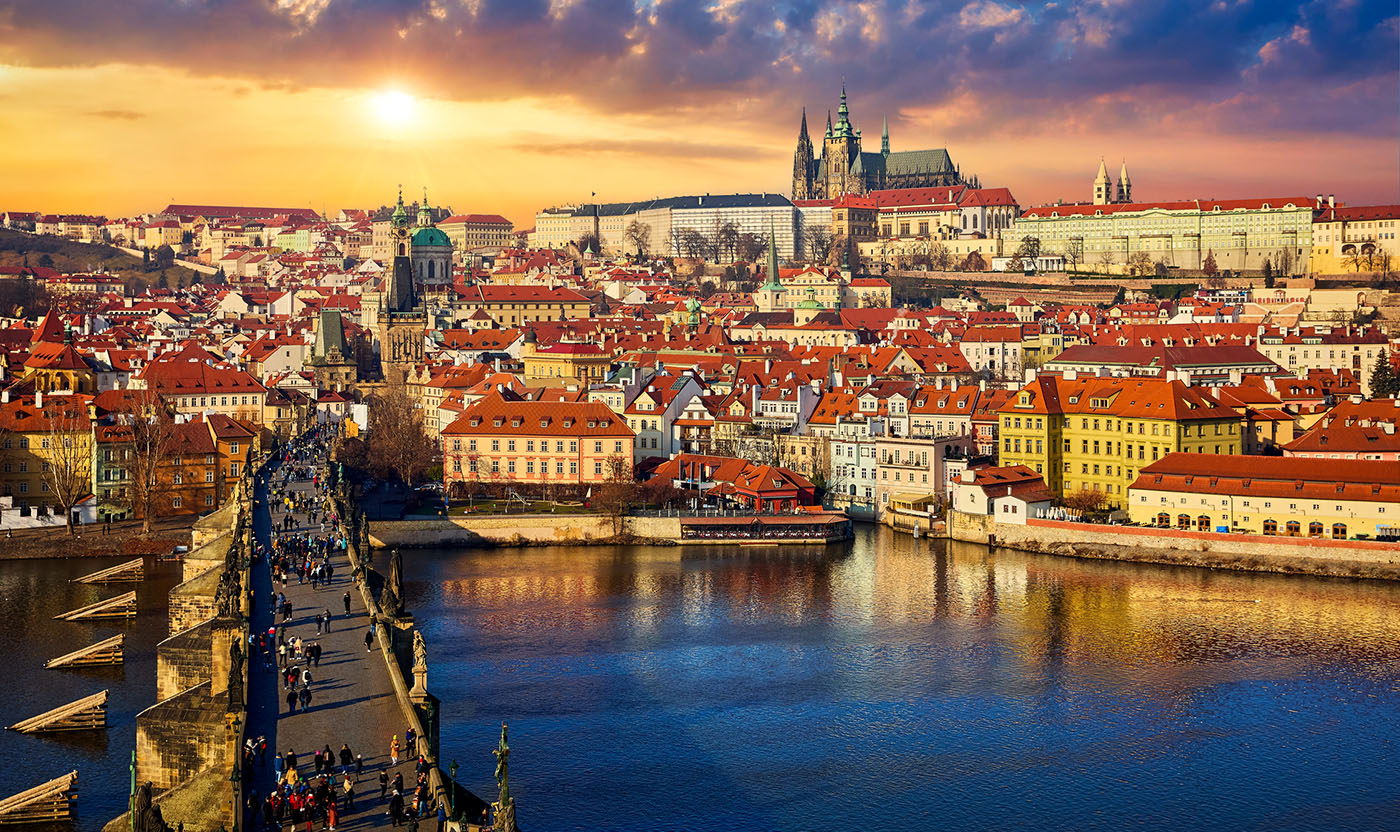
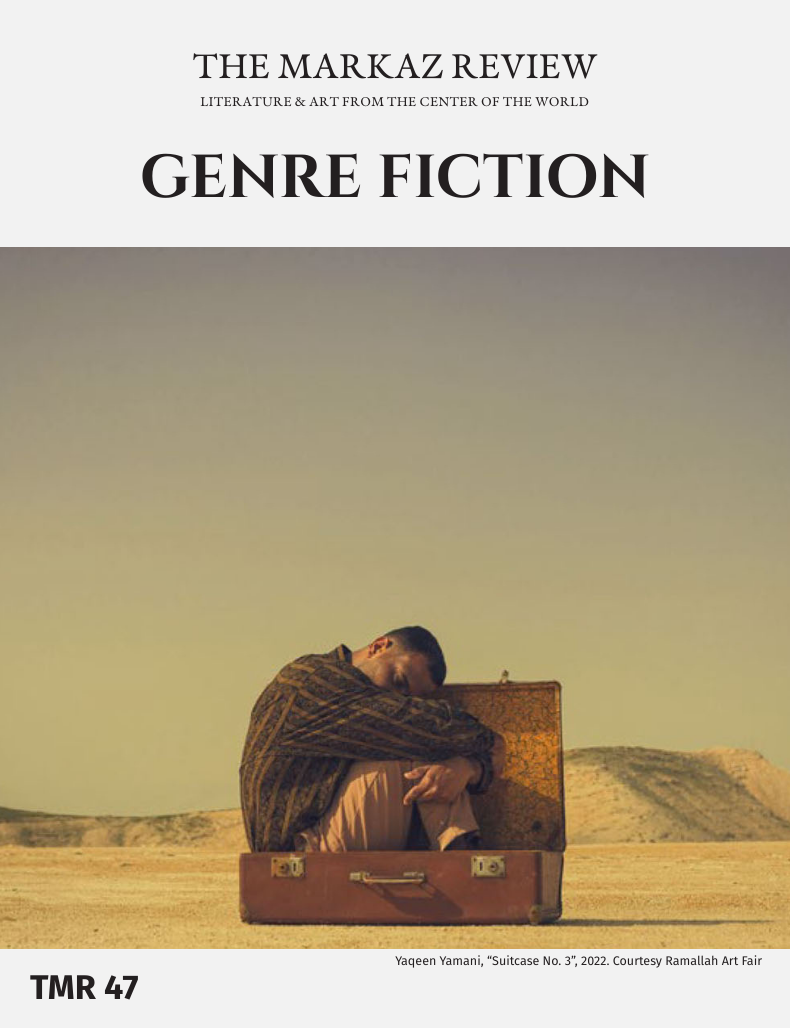
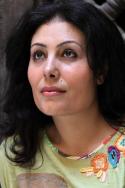
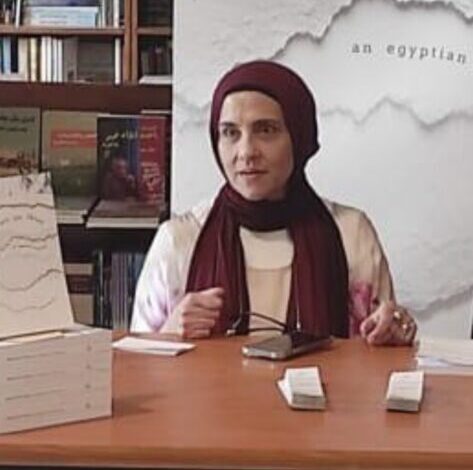
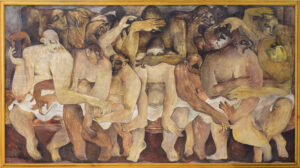
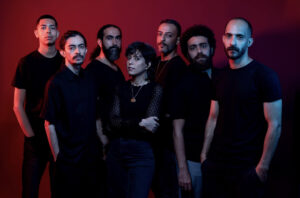









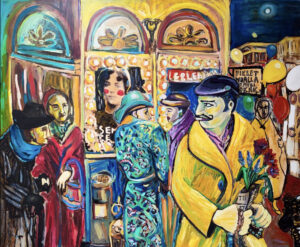


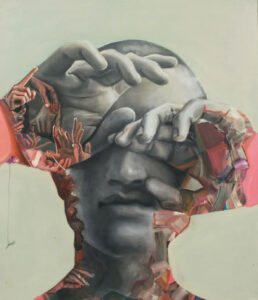



























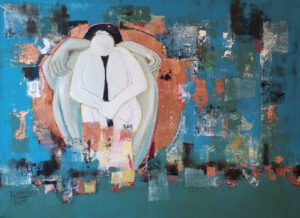














Pingback: Issue 12: Echoes - Rowayat